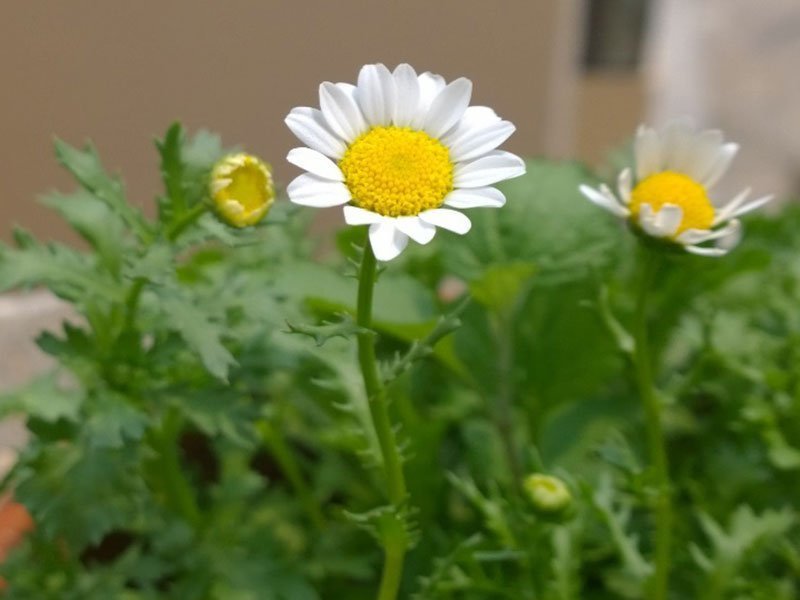Why Are My White Mums Turning Purple?
Introduction
White mums are a popular choice for gardens and floral arrangements. If you notice your white mums turning purple, don't be alarmed. They may just be reacting to external factors. White mums will eventually return to their white color with proper care.
Why Do White Mums Turn Purple?
Process of Aging
White mums contain a pigment called anthocyanin, which is responsible for their vibrant colors. As the plant matures and white mums flowers start to fade, the production of anthocyanin increases. You may see a white mum plant with both white and purple flowers. Because it is going through the process of aging.
Soil pH Imbalance
White mums prefer slightly acidic soil with a pH 5.8-6.8. Too alkaline soil can affect the nutrients absorbed. This can lead to flower color change.
Nutrient Deficiencies
White mums also require certain nutrients to maintain their white color. For example, iron and magnesium. If these nutrients are lacking in the soil, it can result in the plant producing purple pigments instead.
Pests and Diseases
Pests and diseases can also cause white mums to turn purple. For instance, aphids can suck the sap out of the plant, causing stress and discoloration. Fungal diseases can affect the plant to produce chlorophyll. For example, powdery mildew or leaf spot.
Environmental Stressors
Extreme temperatures, drought, or excessive sunlight can lead to white mums turning purple. White mums are sensitive plants. Any changes in their environment can cause them to produce a purple pigment called anthocyanin. For example, cold weather.
How to Test and Adjust Soil pH
You can test the soil pH levels to ensure your white mum plants have an ideal growing environment. Just use a soil pH testing kit which is available at most gardening stores. You can adjust the soil pH accordingly after determining.
You can add lime if the pH level is below 5.8. You can add sulfur if the pH level is above 6.8. Follow the instructions on these products carefully. Retest the soil after a few weeks. Ensure the pH level has been adjusted correctly.

Nutrient Deficiencies and Solutions
Common Nutrient Deficiencies in White Mums
Iron deficiency can cause leaves to turn yellow and eventually purple. This leads to chlorophyll and photosynthesis reducing. A lack of magnesium Magnesium deficiency can cause poor growth and leaf discoloration. It is an essential nutrient for the proper function of enzymes. This results in mums leaves turning yellow.
Essential Nutrients for Mum Plants
White mums require essential nutrients to thrive. For example, nitrogen, phosphorus, potassium and micronutrients. A lack of any nutrients can negatively impact the health and growth of white mum plants.
Fertilization Tips and Best Practices
It is recommended to use a fertilizer specifically designed for flowering plants. White mums will receive all the necessary nutrients. Follow the instructions on the fertilizer package carefully. Overfertilization can also lead to nutrient deficiencies which damage the plant.
Guarding Against Pests and Diseases
Common Pests Affecting White Mum Plants
Aphids, spider mites and thrips are common pests. These tiny insects feed on the plant's sap. This causes it to become weak and discolored. White mum plants are also susceptible to fungal diseases. For example, powdery mildew and botrytis blight.
Recognizing Symptoms of Pest Infestation
Pests can be difficult to spot on white mum plants. Because they are small and often hide in the plant's foliage. Wilting leaves, sticky residue on leaves and distorted growth are common signs of pest infestation. You can identify fungal diseases by white or gray powdery spots on the leaves and stems.
Preventive Measures and Natural Remedies
Regularly removing dead or diseased leaves to maintain good plant hygiene. You can also use natural remedies to control pests. For example, neem oil or insecticidal soap. Avoid overhead watering to prevent fungal diseases. Your plants will have proper air circulation.
Environmental Stressors and Protective Measures
Impact of Environmental Factors on White Mums
Extreme temperatures, excessive sunlight exposure and lack of water can cause white mum plants to turn purple. The plant will produce anthocyanin and reduce chlorophyll production when it is exposed to these conditions for a long time.
Protecting Mum Plants from Extreme Weather Conditions
Provide them with proper shelter to protect white mum plants from extreme weather conditions. You can use shade cloth or plant covers during hot and sunny days. Similarly, during cold weather, cover the plants with a frost blanket or move them indoors if possible.
Providing Adequate Sunlight and Water
Adequate sunlight and water are essential for the health of white mum plants. They need at least six hours of direct sunlight daily. However, too much sun can also cause stress. So monitor and adjust accordingly. Regular watering is crucial, especially during hot and dry weather.
Conclusion
White mums turning purple is often due to various factors. You can confidently care for your white mums with this knowledge. You will enjoy their beautiful blooms for years to come.

